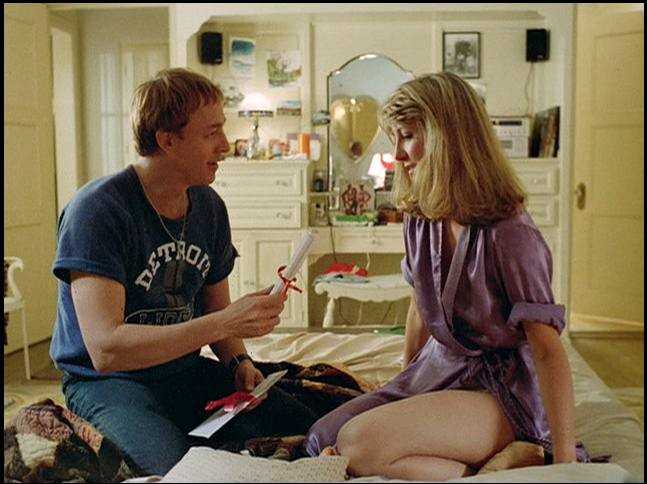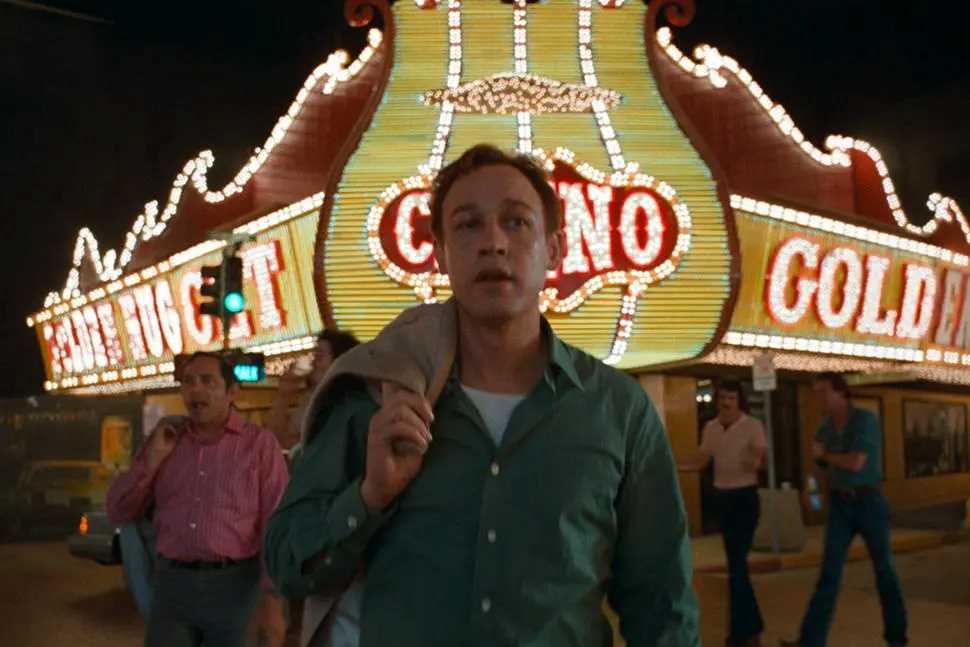One from the Heart: Reprise
12AHaving directed 1979’s Apocalypse Now, Francis Ford Coppola wanted to go in a completely different direction for his next project, a musical.
So he swapped gruelling location shoots in foreign climes, for a completely studio based project, which he shot at his own Zoetrope Studios, recreating Las Vegas for 1982’s One From the Heart.

So this is my diploma passing as a stud with honours.
Just celebrating their five year anniversary are couple Frannie (Teri Garr) and Hank (Frederic Forrest). But to say they were happy together would be pushing it; they have reached that point where both know in each other’s hearts that it’s all a bit stale, but don’t have the courage to admit it.
But then Frannie meets a dashing young man on the Vegas strip where she works. His name is Ray (Raul Julia) and Frannie quickly realises that he’s everything that Hank isn’t, and she finds that appealing. She then makes the decision that her relationship with Hank is over, and it’s time to move on.
Initially Hank is fine with that, even having his eye on someone else, the exotic performer Leila (Nastassja Kinski), but it doesn’t take him long to appreciate that Frannie really is the one that he wants, and that he’s going to have to fight to win her back.

I got to see Adele, so i'm good.
After the huge critical and commercial success of Apocalypse Now, Coppola’s attempt at re-inventing the musical was an absolute flop in every sense, making only just over $600, 000 at the box office on a budget of $26 million.
There are a number of reasons that it didn’t succeed, but the weak narrative and underwhelming performances from its two leads would have to be major factors.
However, this restored 4K re-release is the perfect time to reassess Coppola’s vision, and dissect his underperforming “heart”.
The most immediate and obvious aspect of the film is its look; Coppola shot it entirely in studios, replicating musicals of the thirties and forties. It is overwhelmingly artificial at times – which sadly goes for some of its acting too, sadly – with its heavy wash of neon lights and hand-painted landscape backdrops.
It’s a heightened and exaggerated reality, much like many of those classic musicals of old, that is ultimately all about the performance. However, Coppola, not one for sticking to convention, turns it on its head by juxtaposing it with a melancholic jazz soundtrack, provided by Tom Waits. The truth is, the marriage of the glaring visuals with the dour soundtrack don’t sit well together, proving to be far too jarring for its own good. It’s not helped by the fact that Coppola’s relentless soundtrack is somewhat suffocating, always omnipresent that is likely to wear an audience down.
There’s an argument for his leads giving synthetic performances to contribute to the already established artificial world – which could be compared in some way to Gerwig’s recent Barbie - but it sadly falls flat; the heart of this film is their relationship, and if an audience doesn’t buy into it, all is lost, as is the case here.
It’s peculiar because there are some great performances from the support cast of Kinski, and the wonderful Julia and always watchable Harry Dean Stanton, who all manage to outshine the main protagonists.
Visually it still remains a spectacle however, and although Coppola failed in his ambition to re-invent the musical, he had a pretty darn good try. It is brave, bold and brash, and admittedly ahead of its time, to the point that audiences were simply not ready for it.
Its failure didn’t hold Coppola back however, as he bounced back with more familiar material, with 1993’s The Outsiders and Rumble Fish.
It’s a film that had so much potential, that Coppola didn’t fully realise, even admitting as much by declaring it as a “work in progress”, which it remains to this very day. In fact, with its use of jazz and lo-fi performances, he delivered something more akin to an anti-musical musical.
It’s a sublime film artefact however, an example of a visionary director, working outside of the studio system, who showed great courage and passion in wanting to redefine a genre, and almost pulling it off.
